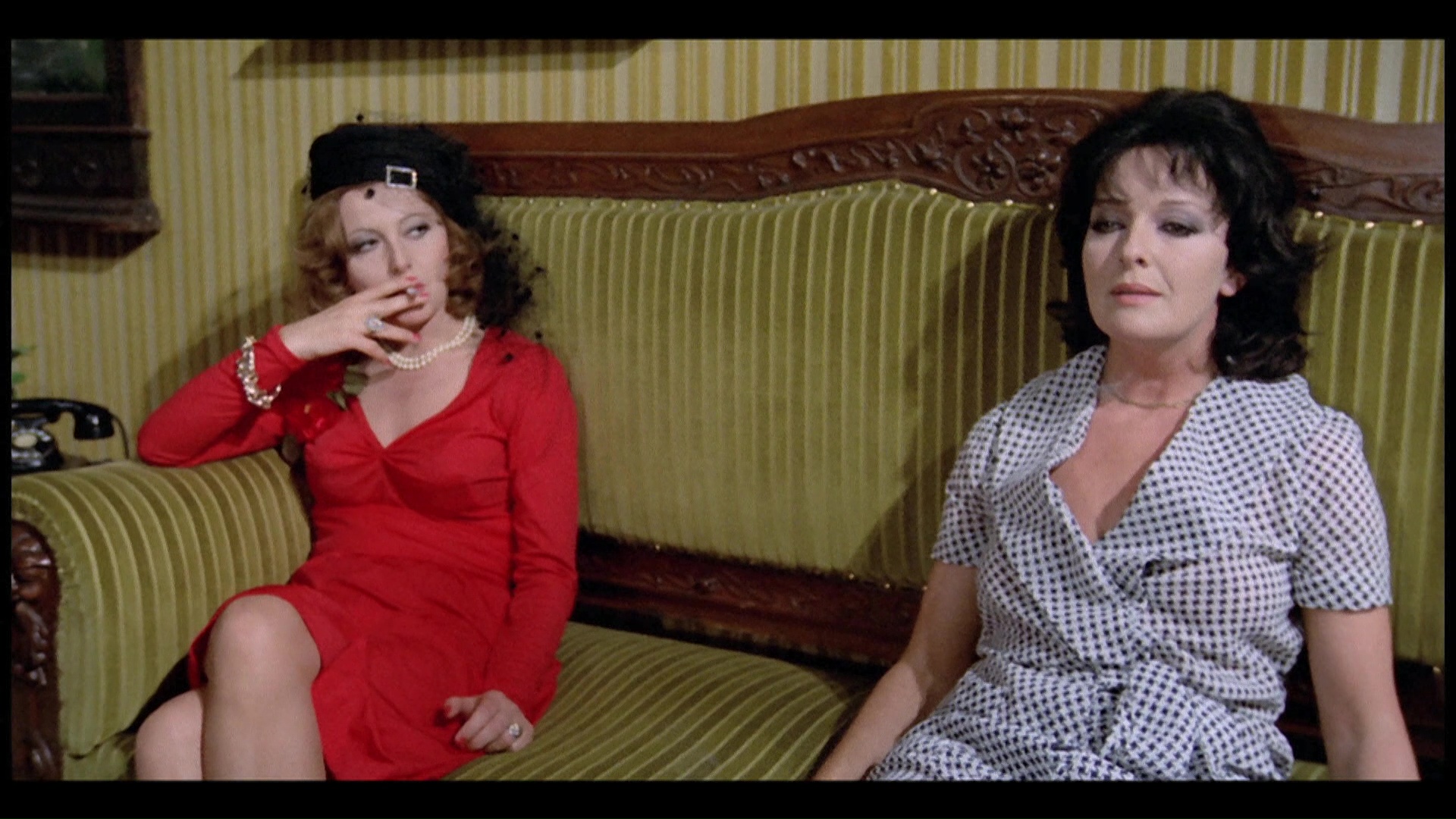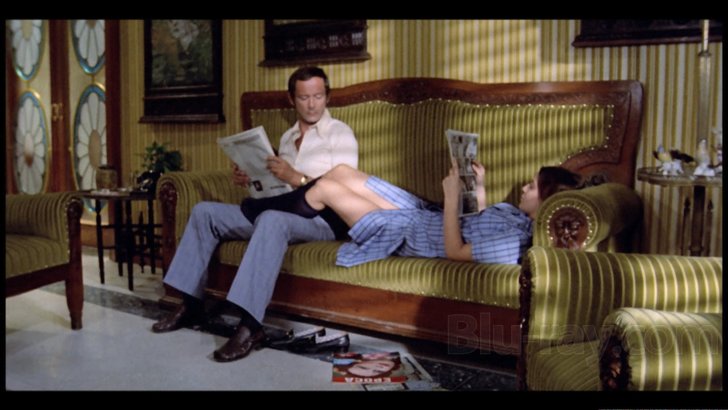Seduction (1973): A Whisper of Allure from Italian Cinema

📺👉👉Seduction (1973): A Whisper of Allure from Italian Cinema

✨In the rich tapestry of 1970s Italian cinema, Seduction (La Seduzione), directed by Fernando Di Leo, emerges as a rare gem where desire, psychology, and societal norms intertwine in a captivating narrative. Released in 1973, the film is not merely an erotic thriller but also a profound exploration of human nature, exposing the hidden corners of hypocrisy and repressed longing.
🤷♀️🤷♀️A Tale of Temptation and Sin

✨Based on Ercole Patti’s novel Graziella, Seduction follows the return of Graziella (Lisa Gastoni), a young, beautiful, and confident woman, to her small hometown in Sicily after living in the city. Her arrival is like a gust of wind, disrupting the quiet lives of those around her, particularly Giuseppe (Maurice Ronet), her stepfather. Giuseppe, a conservative and respected figure in the community, soon finds himself entangled in a web of complex emotions, from forbidden desire to jealousy and obsession.
✨Graziella, with her intelligence and natural allure, becomes the story’s focal point. She is not just a symbol of beauty but a deeply nuanced character who uses her charm to manipulate and challenge societal norms. The relationship between her and Giuseppe forms the heart of the film, a dangerous dance between desire and morality where the line between right and wrong grows increasingly blurred. Throughout the story, Fernando Di Leo masterfully builds an atmosphere of tension, guiding the audience toward a conclusion that is both tragic and inevitable.
✨✨👉Fernando Di Leo’s Directorial Style
✨Fernando Di Leo, a prominent figure in Italy’s giallo and poliziotteschi genres, brings a unique style to Seduction, blending the finesse of arthouse cinema with the allure of exploitation films. Unlike his action-driven works like Milano Calibro 9, Seduction embraces a deliberate, slow pace, allowing characters to reveal themselves through quiet moments and meaningful glances. The Sicilian setting serves as a supporting character, with its narrow streets, ancient houses, and Mediterranean sunlight creating a backdrop that is both poetic and oppressive.
✨The film’s score plays a vital role, with haunting yet gentle melodies that amplify the characters’ unease. Di Leo, alongside his cinematography team, crafts visually striking scenes, particularly in the dialogues between Graziella and Giuseppe, where light and shadow mirror their inner conflicts.
✔✔Stellar Performances and Profound Themes

✨Lisa Gastoni delivers a mesmerizing performance as Graziella, balancing seductiveness with enigma. She embodies her character with confidence and sharpness, captivating the audience’s attention. Maurice Ronet, as Giuseppe, is equally compelling, portraying a man torn between morality and desire. The chemistry between the two leads is the film’s soul, creating a relationship that is both magnetic and unsettling.
✨Seduction is more than a story of personal temptation; it is a sharp critique of hypocrisy in conservative societies. Through Graziella’s lens, the film exposes the invisible pressures women face and how they can wield societal prejudices to claim power. At the same time, it explores the consequences of suppressed emotions, as buried desires ultimately lead to destruction.
📺🥰Legacy and Contemporary Relevance

✨Though not as widely celebrated as some of Di Leo’s other works, Seduction remains a must-watch for fans of 1970s Italian cinema. Its blend of psychological depth, subtle eroticism, and social commentary offers a unique experience that is both sensual and thought-provoking. In today’s context, Seduction retains its allure by tackling timeless themes like desire, power, and freedom.
✨The film is available on select streaming platforms or through DVD/Blu-ray releases of European classics. For those eager to explore a lesser-known facet of Italian cinema, Seduction is an unmissable treasure.
🥰🥰Conclusion

✨Seduction (1973) is a testament to Fernando Di Leo’s ability to craft complex human stories. With its gripping narrative, outstanding performances, and profound themes, the film is not just entertainment but an invitation to reflect on the nature of desire and society. If you’re seeking a film that is both seductive and haunting, Seduction will not disappoint.





